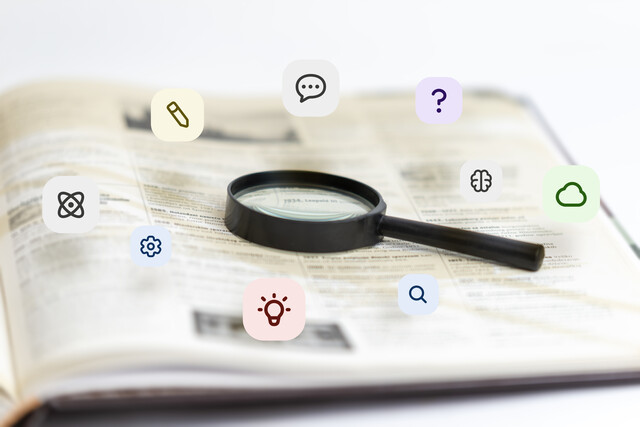Introduction
For students wishing to improve their reading skills these days, there is nothing better than the Internet to provide a wide range of opportunities, resources, and links to find anything from beginning readers to literature passages that test and challenge reading skills. Studies have shown that using the Internet to improve reading and English writing skills provides students with a wide range of selections that prevent boredom and provide entertainment.
Students who learn and improve their English reading skills through various computer software programs or Internet resources find that global interactions via forum boards and blogging helps them to make personal connections with others learning at their speed, and also provides them with help and guidance along the way. This article will illustrate some of the many ways students may improve their English reading and writing comprehension through the use of the World Wide Web.
Tips on Using the Internet for Improvement
Whether you are learning English as a second language or are merely trying to increase and improve your English vocabulary, reading, or writing capabilities, the Internet can help in many ways. However, there are certain things computer users should remember when it comes to exploring and learning over the Internet.
Students learn differently, and that goes for those learning English, science, math or history. Some of us are visual learners, meaning that we understand more clearly when we can see something, and others are auditory learners, which means they do best when hearing information. Some students are a combination of visual and auditory learners, while other students are tactile learners, which means they do better if they can explore, touch, and feel items or objects that pertain to their area of study.
Because of this, every student will gain different benefits from learning over the Internet. Learn at your own pace, and try to find resources and links that interest you to help prevent boredom, lack of interest, or confusion. Choose the type of Internet websites and links that interest you and what you would like to learn about. Your reading level and English vocabulary capabilities may limit you to certain games, websites, or informational materials, but the important thing is to explore your options and then make your choice.
There is so much more to reading than vocabulary building, so when looking for websites to help improve your reading, choose wisely. Try to find websites that not only offer vocabulary lists and vocabulary building resources, but also those that explain their usage in sentence structures. Grammar is an essential part of the English language and learning the basics of grammar will provide a solid foundation for both reading and writing the English language.
Try to find websites that offer both visual and auditory support for reading and vocabulary building. Such websites will offer graphics and sound to help perfect your pronunciation, as well as the meaning of root words, suffixes, prefixes, and how they are used to build vocabulary.
When learning on the Internet, try to get into the habit of speaking out loud. Most of the time, students in classroom environments are encouraged to read silently. However, whenever possible, repeat vocabulary or reading passages out loud when using the Internet. Doing so is very effective in helping students memorize vocabulary, pronunciation, and sentence formation.
The Internet provides a wide range of opportunities for improving English reading, but students should also be realistic and patient in their goals. Remember the saying, "practice makes perfect." Don't expect to remember every vocabulary list or reading passage the first time. Realize that you will make mistakes, and then go back and try again. Don't get discouraged, but take the time to practice every day for short periods of time and you will begin to see improvements almost immediately.
Reading Links and Resources
While the following list is not meant to be all-inclusive of the types of websites available on the Internet, they will offer students a starting point when it comes to finding resources and links to improve reading. ]
A very user-friendly reading site, called ESL Reading Smart, offers students opportunities to access the various reading-level materials and selections. Containing more than 100 lessons and multimedia activities, this website provides printable student materials or lesson plans for English as second language students. This website offers a free trial as well as demonstration of their services and capabilities.
NaturalReader, offers students the capabilities of downloading books on tape as well as converting text to Mp3 capabilities.
StoryPlace is a website that offers a children's digital library for reading and listening comprehension of storybooks. Many adults hoping to improve reading skills find that using children's storybooks provides an easy and visually stimulating way to learn new vocabulary. This website also offers interactive and animated stories with activities and reading lists to related materials. Geared for the elementary level student, it offers reading materials in both English and Spanish. Find them at www.storyplace.org
Most students of a foreign language understand that listening to the spoken language is one of the best ways to learn new vocabulary and to improve reading and speaking skills. Combining vocabulary lists and graphics is also an excellent way to help students memorize words and concepts. When looking for websites, try to find those that are user-friendly, adapt well to your computer's capabilities and offer activities that will help improve your skills.
Many students wishing to improve their reading skills engage in independent study. Through the use of grammar and vocabulary skills and understanding, a variety of websites may offer quizzes and games that enhance the skills. One such website, Self-Study Quizzes for ESL Students, offers learners of all ages the ability to test their own knowledge whenever they wish.
Grammar quizzes, vocabulary quizzes, websites that use music or movies to help improve vocabulary, may all be found on the Internet with a little bit of patience. Website resources also include help with misspelled words, grammar, and provide puzzles and games for ESL students and native English speakers wishing to improve their comprehension, reading skills, and written language skills.
Forum boards, discussion groups, and blogs offer unlimited ideas and resources for students wishing to improve their reading and comprehension skills. A few are listed here:
Discussion boards, such as http://www.grammarmudge.cityslide.com/Home.html, offer links to various discussion boards grammar, ESL, education and literature.
A great forum board to start your search for discussions about anything and everything Englis
Blogging is a great way to immerse yourself into language issues, as well as links to additional resources. Check out this one called Improve Reading Comprehension
Introduction
Nouns are found in all languages, not just English. A noun, which describes a person, place, or thing, is often combined with a verb to convey a thought. However, we will limit our understanding of nouns to their ability to convey distinct thoughts, ideas, or descriptions of animals, people, buildings, and objects.
Understanding how nouns may be used to create speech and thought are important for students learning any language. Students learning basic vocabulary should be able to distinguish between a noun, a verb and other sentence parts in order to master any language. Proper use of nouns helps to form clear and understandable sentences, whether they are spoken, or, written or read.
Nouns are a vital part of sentences that are considered to be the subject or idea of a sentence. For example, look at the following words, which convey very specific meanings:
� White House
� Empire State Building
� Teacher
� Doctor
� Car
� Horse
Nouns may also be the subjects of a sentence. Remember that the subject is the word that performs the action in the sentence. In the following sentence, see if you can find the subject:
� The teacher is grading her papers.
That's right, the subject in this sentence is teacher. He or she is the one performing the action of the sentence. Let's try another one. Find the subject of the following sentence:
� Sally rode her bike to school.
Right again! Sally is the subject. She is the one riding the bike to school.
Verbs convey action or activity. A verb is typically joined to the idea of a subject or object that is doing something. Verbs are generally formed using the present tense, the past tense, and the future tense. Learning how to use subjects -- or nouns -- together with verbs is important when trying to read, speak, or write the English language.
Verb tenses are used to convey segments of time. For example, an action may have taken place last month. The past tense of a verb is used in such a situation. If something happened today, you would use the present tense of the verb. If you were planning something in the future, you would use the future tense.
Take a look at the following examples of these tenses:
Past: I walked to school last week.
Present: I want to walk to school today.
Future: Next week, I will walk to school every day.
Remember that tense generally indicates a period in time in which any action or activity takes place. Here's more practice identifying tenses. Look at the sentences below, with each one illustrating a past, present, and future tense.
Present: I drink apple juice every morning.
Present Progressive: I am drinking apple juice with my snack.
Past: I drank apple juice last night before bed.
Pronouns are also an important part of the English language. Pronouns can refer to people, places, and things, just like nouns or subjects, but they also can convey ideas that are not so definite as a noun.
Actually, pronouns are sometimes substituted for nouns. Personal pronouns refer to people most of the time, but they also can be used in place of nouns that refer to places and things. Personal pronouns include:
� He
� She
� We
� It
� They
When reading passages or documents, pronouns like "she," "he," or "they" are often used after the introduction of people so that names don't have to be constantly repeated. For example, let's say you just read a short story about a person named Sally. If no other people are introduced in the story, a reader may assume that Sally is the only person being referred to. Therefore, it is not necessary to always use the name "Sally" when writing about her thoughts or actions. A writer may also use pronouns such as "she" or "her."
Adjectives and adverbs are used to help "modify" or explain verbs and nouns. They provide description or a sense of "color" to actions or words that help enhance their meaning and give them more definition. In essence, they give additional detail or information about the words they are "modifying" or "helping". These words add interest and detail to many sentences.
Adjectives modify nouns and pronouns. Adverbs modify verbs and adjectives, and sometimes, even other adverbs.
Adjectives are basically words that describe something. For example, look at the following sentences and see if you can pick out the adjectives.
� The grass is green.
� The house is ugly.
� My car is old.
� My sister is beautiful.
If you choose green, ugly, old and beautiful, you're right! Now, let's move on to adverbs.
An adverb is used to help describe, or modify, a verb. Basically, they are used the same way as adjectives are used to help describe nouns. Look at the following ways in which adverbs are used to help convey meaning or description.
� The man runs fast.
� The car is moving slowly.
� The woman is walking quickly.
� The golf ball spins crazily as it travels through the air.
Clear sentence structure is important in any language in order to understand what is being read. If instructions or directions aren't written clearly, a person could easily get lost, or make a mistake in building something or putting something together. Clear, well-written sentences help a person to understand many different aspects of the written word, including emotions, directions, facts, ideas, and thought processes.
We're going to keep it simple by forming easy, short sentences that contain a noun or a subject and verb, in addition to what is called acomplement, which helps to provide a complete thought. For example:
� The cat runs in the house.
� The woman walks to work.
� The girl swims in the pool.
Incomplete sentences are sentences that may contain a subject and a verb, but still don't make sense. Take a look at the following examples for greater understanding of this concept.
� After the contest ended.
You see how these sentences just don't make sense? Just because a subject and a verb are used, does not mean the sentence is clear.
- The winners were awarded medals after the contest ended.
- Because my dog loved it, I gave him a second biscuit.
- I slept in the car on the way here.
Conclusion


























